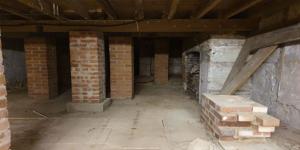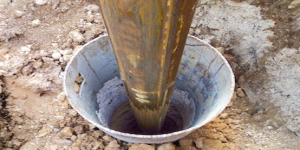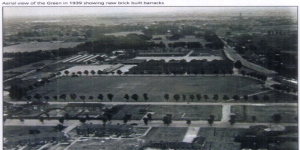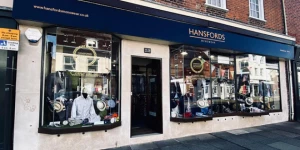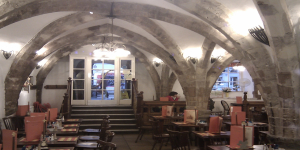in 1876 was needed to authorise compulsory purchase of land for the track.
The tender to build and manage the line from Thomas Oliver of Horsham
was accepted by the Board of the London, Brighton and South Coast Railway
in July 1878, and Robert Dendy was paid £1,374.10s in November 1879 for
the track bed across Warren Farm.
The line eventually opened for a full three-class passenger service from
Chichester to Pulborough via Midhurst on 11 July 1881. Unfortunately, the
line could not compete with the motor car and the passenger service ended
in 1935. A long siding of over half a mile on the downside south of Lavant
Station was opened in 1913. It ran under the Lavant Road and The Drive to
the newly opened gravel pits on the Stride Estate, and was still in operation
in 1947. A foreshortened line serviced the Lavant sugar beet industry until
1969, and the Lavant gravel beds from 1971 to 1991 when it closed for good
and the line lifted. The track bed became the Centurion Way, a tarmac path
for pedestrians and cyclists.
In March 1901 the Bognor Observer reported hearsay of an application to
the railway company for a station to be built at the Brandy Hole Bridge to
serve Stride’s residential development in Summersdale. The railway
company did not approve the proposal and no more was heard of it. The
same edition also suggested a penny bus service was about to start between
the Chichester railway station and Summersdale, where the development of
the estate was said to be progressing well. The area was described as ‘A dry
and healthy location, with gas and water laid on, and rates very low.’ Strides
offered special terms by which the house became the absolute and
unencumbered property of the purchaser after payment of an ordinary rental
for 20 years.
Random articles of interest
peterborough tunnels
One of the most common questions I’m asked about Peterborough’s history is whether there are any tunnels under the city. Local legends say that there is a tunnel stretching from the Cathedral to Monk’s Cave at Longthorpe. Similar tunnels are alleged to stretch from the Cathedral to the abbeys at Thorney or Crowland.
These are familiar myths in many historic cities across the UK, mostly urban legends based on half remembrances of sewers, cellars or crawlspaces, coupled with wishful thinking and rumour.
The stories of tunnels from Peterborough to
Underneath Hansford Menswear
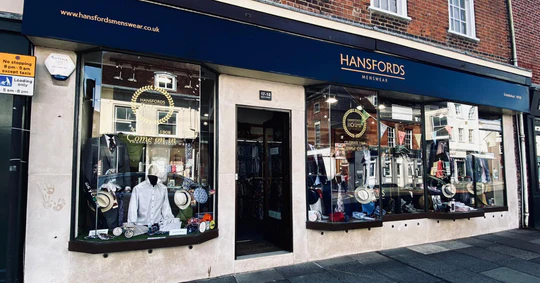
A number of those readers remembered a story about tunnels underneath Hansford Menswear, also in South Street, so we spoke the shop''s owner to find out more.
Matthew Hansford described a blocked-off passage in cellar of the shop, which he believes may have led to the cathedral
65 East Street
DD
I worked at 65 East Street when it was ''Hammick''s Bookshop'' (now Specsavers). We had a trapdoor in the middle of the floor that led down to a tunnel-shaped cellar that seemed to extend through the front of the shop and under the pavement outside. I didn''t see any evidence of it ever having joined another tunnel and imagine that perhaps there was once an opening in the pavement for deliveries.
40 east street
EAST STREET No 40
SU 8604 NW 4/103
Grade II
C18. 3 storeys and attic. 2 windows. Red brick.
Panelled parapet hiding
dormers. Sash windows in reveals in flat arches; rubbed brick voussoirs; glazing bars missing in lower windows.
C20 plate glass shop front and fascia on ground floor.
summersdale golf course and mr Stride
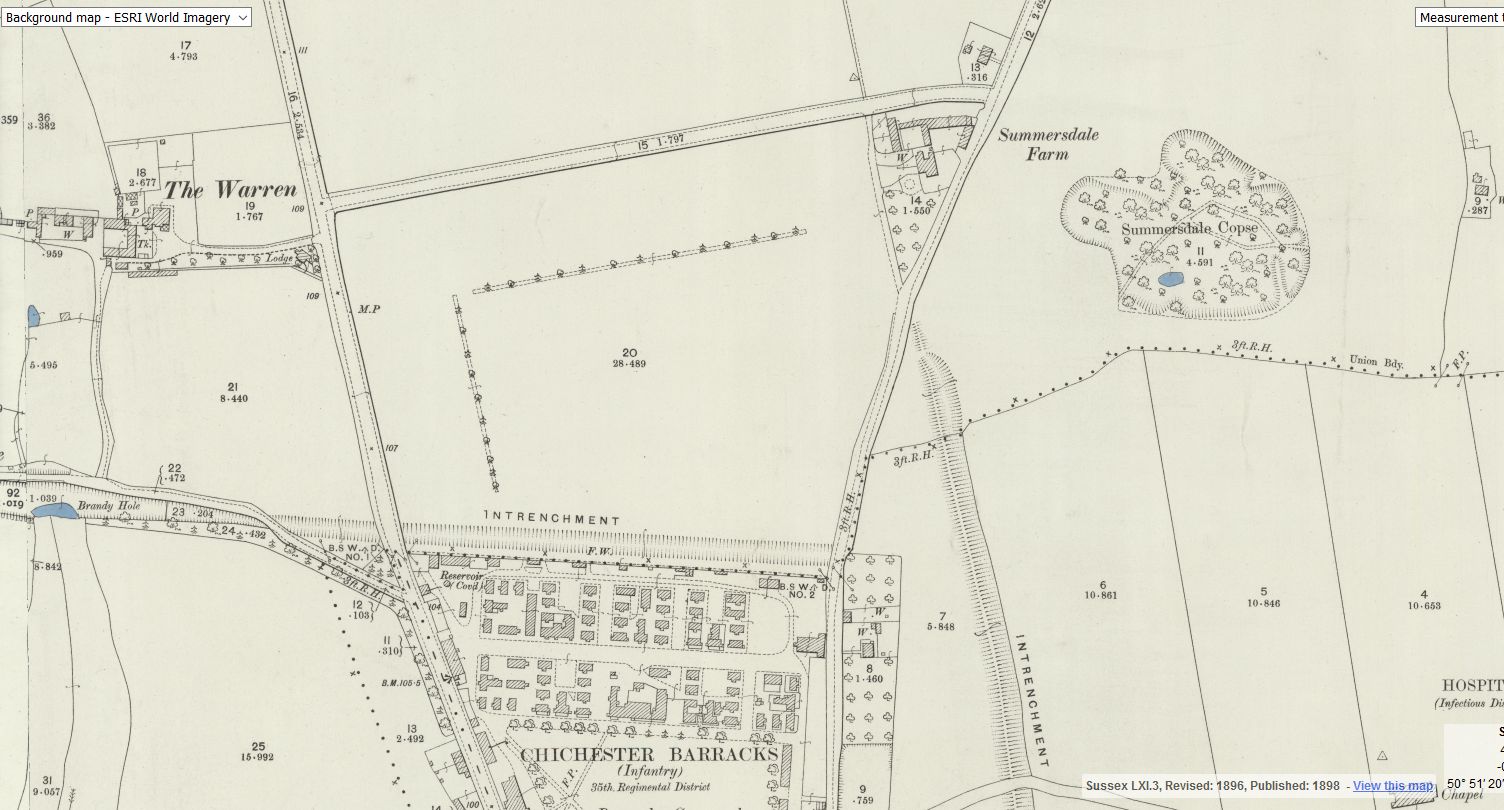
Between The Drive’s western and southern ends, Charles Stride built a private estate in c.1905 which included a nine hole golf course designed by James Braid, a lodge (Uplands), and a mansion (Woodland Place) with tree-lined grounds which, as Rew Lane, was developed in the late 1950s. The golf course was too close to the Goodwood course to be a commercial success and it was given up for gravel extraction immediately prior to the first World War, with a mineral branch line connected later to the Chichester-Midhurst railway.
His golf course and pavilion is mentioned in https://golfsmissinglinks.co.uk/index.php/england/south-east/sussex/851-sus-summersdale-golf-club-chichester
The club was founded in 1904.
Graylingwell plan with well and springs ponds
Graylingwell plan with well and springs ponds.
where are the tunnels?

Are you curious about the tunnels in Chichester? If you are, you are not alone. Many people have wondered about the existence and purpose of these underground passages that are said to run under the city. Some claim they have seen them, others have heard stories about them, but what is the truth behind the mystery?
In this blog post, I will try to shed some light on the tunnels in Chichester, based on some web searches and historical sources. I will also share some of the rumours and legends that surround them, and invite you to share your own experiences or opinions in the comments section.
What are the tunnels in Chichester?
It was under the Crypt and right next to the cathedral
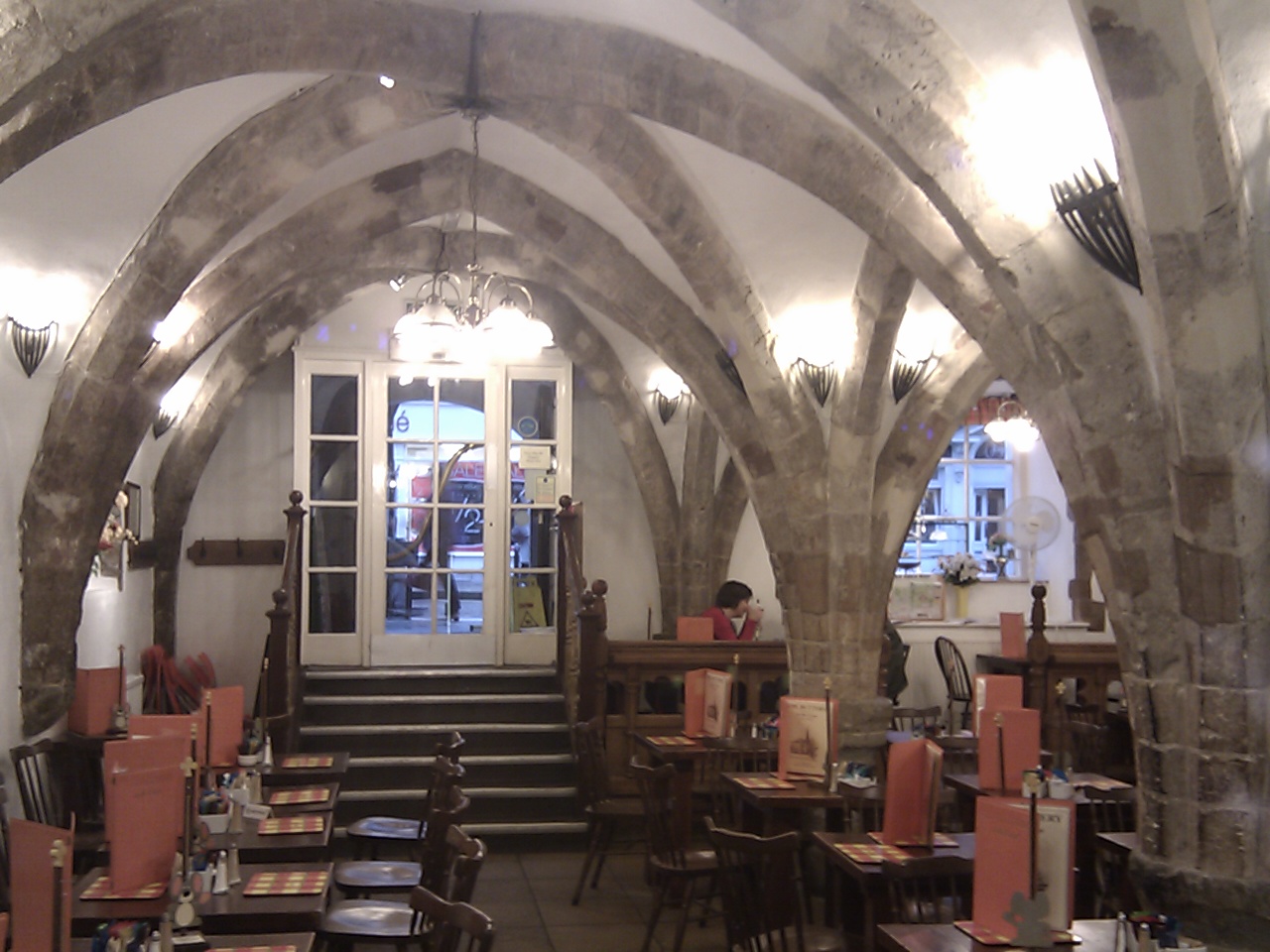
Maureen Williams, 82, of Westgate, recalled a school trip into the rumoured tunnels under Chichester when she was at Chichester High School for Girls.
She estimates she was in her early teens at the time and said she chose to share her memories after reading about the search for evidence in this newspaper.
Read more: It was under the Crypt and right next to the cathedral
Doline – Chichester To Westbourne
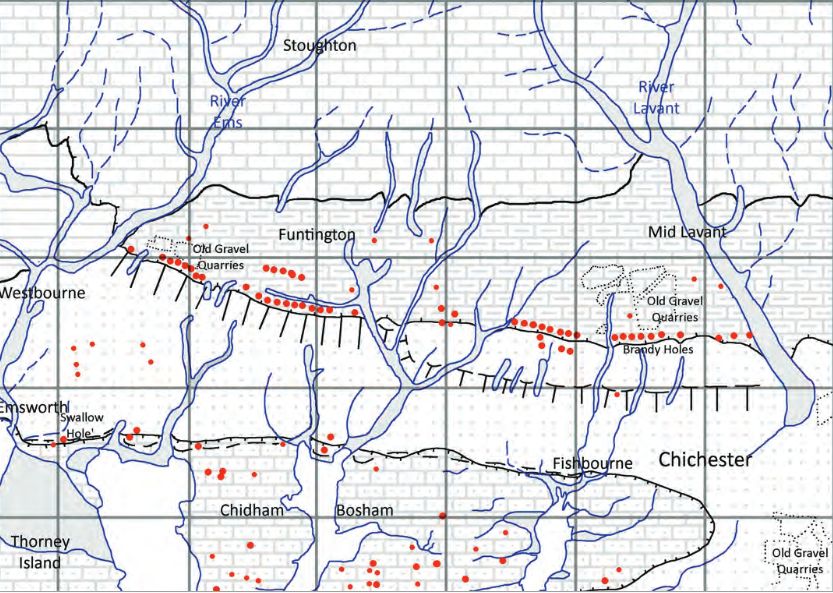
Brandy Hole Lane, East Broyle Copse area in the northwest part of Chichester. A well-developed doline line extends east-west across the area to the north of Brandy Hole Lane, along the underlying Chalk-Reading Beds boundary.
The Environment Agency has made 1m-resolution LIDAR imagery coverage for large areas of England and Wales freely available on the internet under Open Government Licence (www.lidarfinder.com).
